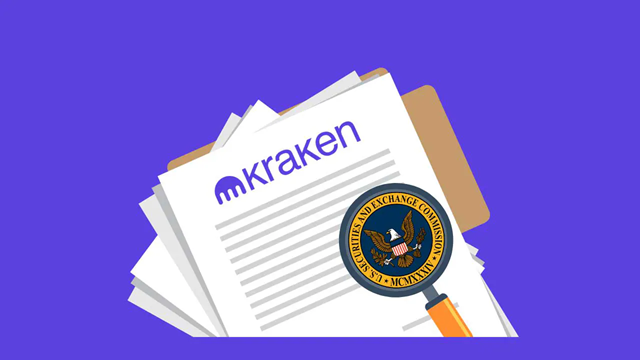MapNode Gets Licensed IncorporationIn Saint Vincent and the Grenadines
SEC Agrees to Dismiss Kraken Lawsuit: A New Milestone for the US Crypto Industry

The decision by the US Securities and Exchange Commission (SEC) to dismiss its lawsuit against cryptocurrency exchange Kraken marks a significant shift in the regulator's approach to the digital asset space. The move could usher in a new chapter where crypto companies are expected to operate in a more cooperative and transparent regulatory environment.
SEC Dismisses Kraken Lawsuit With Prejudice
According to an announcement from Kraken, the SEC has agreed in principle to dismiss the lawsuit it filed in November 2023, which accused the exchange of operating as an unregistered securities exchange, broker, clearing house, and dealer. Additionally, the SEC alleges that Kraken commingled customer funds with its own assets.
Kraken has strongly denied the allegations, claiming that the lawsuit does not reflect its business and is politically motivated. A federal judge previously ruled that the case had merit to proceed to trial, but the SEC has now opted to drop the charges. Notably, the case will be dismissed with prejudice, meaning it cannot be re-filed, and Kraken will not be required to pay a fine or change its business model.
In a blog post on March 3, Kraken asserted that regulatory actions must be based on facts, not political agendas, stressing that the lawsuit against it is “baseless.”
A Major Shift in SEC Policy
The SEC’s decision to dismiss Kraken’s lawsuit comes amid a major shift in the US government’s stance on the cryptocurrency industry. Kraken expressed optimism that this could signal the end of a period of intense regulatory confrontation between regulators and digital asset platforms.
Kraken representatives emphasized that the change in leadership in Washington played a role in the decision. The company also pledged to continue working with policymakers to build a transparent regulatory system that both protects consumers and fosters technological innovation.
New Policy Under Trump: Crypto Gets Support
Kraken's victory is part of a broader shift at the SEC under President Donald Trump. In previous years, under the leadership of former SEC Chairman Gary Gensler, the agency pursued numerous lawsuits against major cryptocurrency companies on the grounds that most digital assets were unregistered securities. Gensler’s “regulate by enforcement” policy has been criticized for stifling innovation and pushing businesses overseas.
However, the SEC is now taking a different approach. Since the leadership change, the agency has withdrawn several lawsuits and investigations, including those involving Consensys, Uniswap, Robinhood, and OpenSea. Notably, on February 27, the SEC also officially dropped its case against Coinbase.
This shift is in line with the Trump administration’s regulatory direction. His nominee for SEC Chairman Paul Atkins is known for his pro-crypto stance, promising a more industry-friendly approach. Pending confirmation, acting SEC Chairman Mark Uyeda has begun scaling back enforcement efforts, creating the Cybersecurity and Emerging Technology Unit (CETU) to focus on fraud rather than comprehensive crackdowns on the industry.
The Future of the US Cryptocurrency Industry
After years of uncertainty and protracted legal battles, the US digital asset industry may be entering a new phase with the prospect of a clearer and more collaborative regulatory framework that will not only enable crypto companies to operate domestically but also facilitate global competition.
However, the challenge is to find the right balance between fostering innovation and ensuring market integrity. If this is achieved, the US will likely continue to maintain its position as one of the world’s leading financial centers for digital assets.













